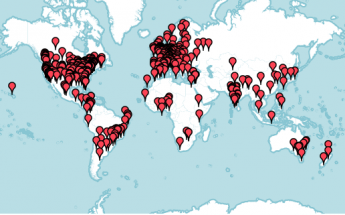You hear “big data” everywhere. But it’s not just some new company jargon; it’s a growing field that businesses are red-hot to employ because they know that data will drive their company forward. And it’s no surprise that the employment prospects for data analysts look strong. In a 2016 Kinsey & Company report, “The Age of Analytics,” the consulting company projected demand for 2 to 4 million “business translators” over the next decade.
So if you’re thinking about making a career change to data analyst, you should take an analytical approach to evaluating this field's fit with your career dreams.
The Me Decision
Think of this as the pre-assessment stage: Just because data analysis is a popular career doesn’t mean it’s the right career for you.
Data analysis requires that you possess both business experience and technical skills, as you are going to be analyzing data in a business setting. If you are technically inclined, then most likely you already have some academic or professional success in that area.
If you are transitioning from another role, however, you will need a thorough grounding in statistics and may need to take a course. Start with our Introduction to Statistics, either in an online format that starts as soon as you enroll, or a more traditional classroom course. Through this course, you can see if you have the aptitude for this career before you make any further moves.
And, if you’re not already expert level at Microsoft Excel, start now! What you learn in that class you’ll be able to apply to the burgeoning—if not already entrenched—Google Sheets. While Excel is still the one you need to know, Sheets has the advantage of being free, operates similarly to Excel and includes the capability to create custom functions.
Gathering Data and Developing a Network

There are a great number of sites and organizations devoted to data and data analysis.
- A good place to start is with a Meetup. They’re located all over the globe, and meeting people for whom data analytics is a passion is a great way to determine if you can find your own place in this field.
- KDnuggets, a popular blog on issues related to data, publishes an interesting data comparison of the largest “big data” groups on LinkedIn.
- Join a professional association such as the Digital Analytics Association. If you’re just starting out, you may just want to visit and read some of its blog posts. Organizations like this can also prove valuable if you’re picking up information on whether data analytics is the right career for you.
- The Open Data Institute (ODI) was founded in 2012 by Tim Berners-Lee and Sir Nigel Shadbolt to promote the use of open data to encourage people to make better decisions with data. It’s a capacious project that gives you a window on the possibilities of a future based on open access to a world of information.
Run a Test or Two
Start with Introduction to Data Analytics. This course gives you a good introduction to the field and its possibilities. Work hard at it, and take the opportunity to get to know your cohort of fellow students. Whether you take a course online or in the classroom, you are going to meet people who share your interests and goals. This community contact is another opportunity for assessment. The people you meet while studying are likely to be the people you work with later on, so be sure to reach out, network, and discover if you’ve found your particular tribe.
Continuing Assessment and Iteration
Continue reaching out. You might want to take UC Berkeley Extension’s Professional Program in Data Analysis. This four-course program teaches you to leverage machine learning, statistics, data mining and big data to develop new strategies in marketing, retail, health care, finance and other fields. When you are taking courses in the program, you have the opportunity to build relationships with a cohort of people who live in your community and who share the same goals. And, get to know your instructors—they can serve as mentors, helping you to find your place.
Best of luck with your data analysis goals!



